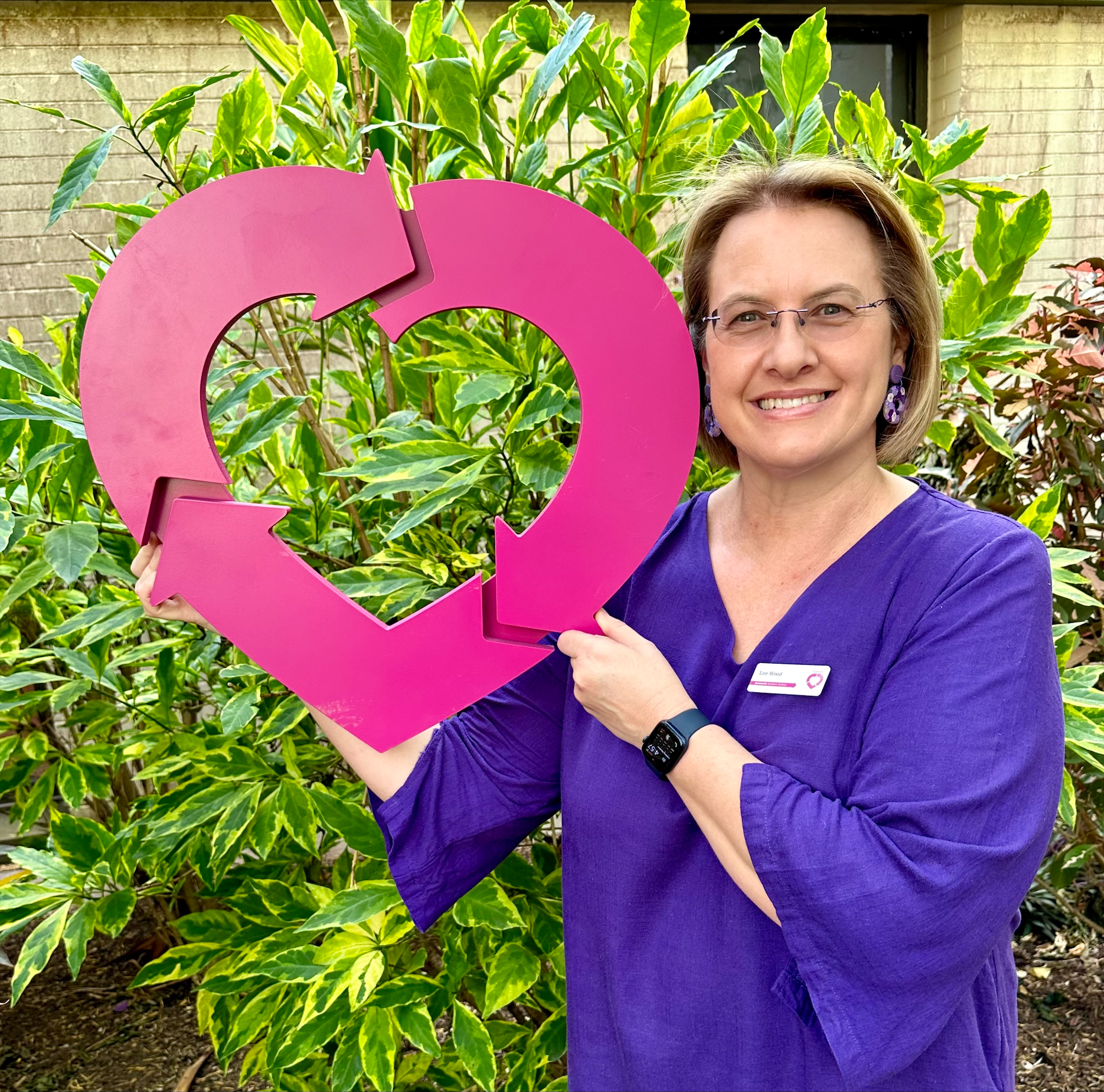
‘At the Royal Darwin Hospital, around 70% of the families we talk to in ICU are Aboriginal. Chronic disease is prevalent, while health and English literacy varies. Discussions around organ donation and transplantation in NT hospitals and remote communities are complex and must take into account differing worldviews and cultural practices.’
- Lee Wood
As told by Lee Wood, DonateLife Northern Territory
I don’t think many people can say that they’ve run a mile down the main street of their city in 30+ degree heat, dressed as a crocodile, a minion and The Flash with their colleagues.
The Northern Territory DonateLife team is small, but we’re passionate about our community and aren’t afraid of doing things a little differently to educate locals about organ and tissue donation. Our participation in the Mitchell Street Mile is just one example of this.
As DonateLife Northern Territory’s Program Director, no 2 days are ever the same, which is what keeps my job so interesting. My role involves leading and supporting the DonateLife NT agency and providing strategic policy advice to governments.
I’ve seen a lot of change in my 20 years of working in this sector, such as an increase in community awareness of donation and many technological advances. My team and I constantly seek new opportunities to raise awareness and improve organ donation rates in the Northern Territory.
The Northern Territory has the lowest rate of organ donation registration in Australia, with just 16% of the population registered on the Australian Organ Donor Register (AODR). However, in the 20 years I’ve worked with DonateLife, I’ve seen that number rise from 5%. I hope to continue seeing those numbers improve with continued community awareness raising and grassroots education programs.
At the Royal Darwin Hospital, around 70% of the families we talk to in ICU are Aboriginal. Chronic disease is prevalent, while health and English literacy varies. Discussions around organ donation and transplantation in NT hospitals and remote communities are complex and must take into account differing worldviews and cultural practices.
There’s such a need to share our message and educate in a way that will connect with local communities. As an example, a number of years ago I worked with a graphic designer and 3 Aboriginal kidney transplant recipients to develop educational resources on organ donation and transplantation. These resources are still extensively used 10 years after their release, and it’s something I see as one of my most rewarding accomplishments.
In 2011, I was privileged to receive a Churchill Fellowship. I travelled to the United States to learn about increasing organ donation rates in cultural groups where English is not their first language. What I took away from this experience was the importance of working with communities on the design, development and implementation of education and awareness initiatives. This is something the DonateLife NT agency continues to implement in our ongoing work.
When we undertake community education programs, we must always recognise that people come from different walks of life, different family experiences, and different cultures with different worldviews.
There are hundreds of remote communities and homelands across the Northern Territory. As part of my team’s work, we aim to provide education about donation and transplantation in some of these communities. Before visiting, we seek appropriate permission from Aboriginal councils and corporations and collaborate with local health clinics, interpreters, and Aboriginal health workers to run our programs on the ground. However, our education work involves 2-way learning. While I believe organ donation is vitally important, sometimes there are other issues that might take precedence for that community and we need to be flexible in our approach.
Through my years of experience, I’ve learned so much about the importance of discussing organ donation with family. It's very, very hard to be in that situation in hospital when your loved one is in a bed and not able to speak for themselves. It provides so much more reassurance to families if they know what their loved one wanted.
Inspired by Lee's story?
